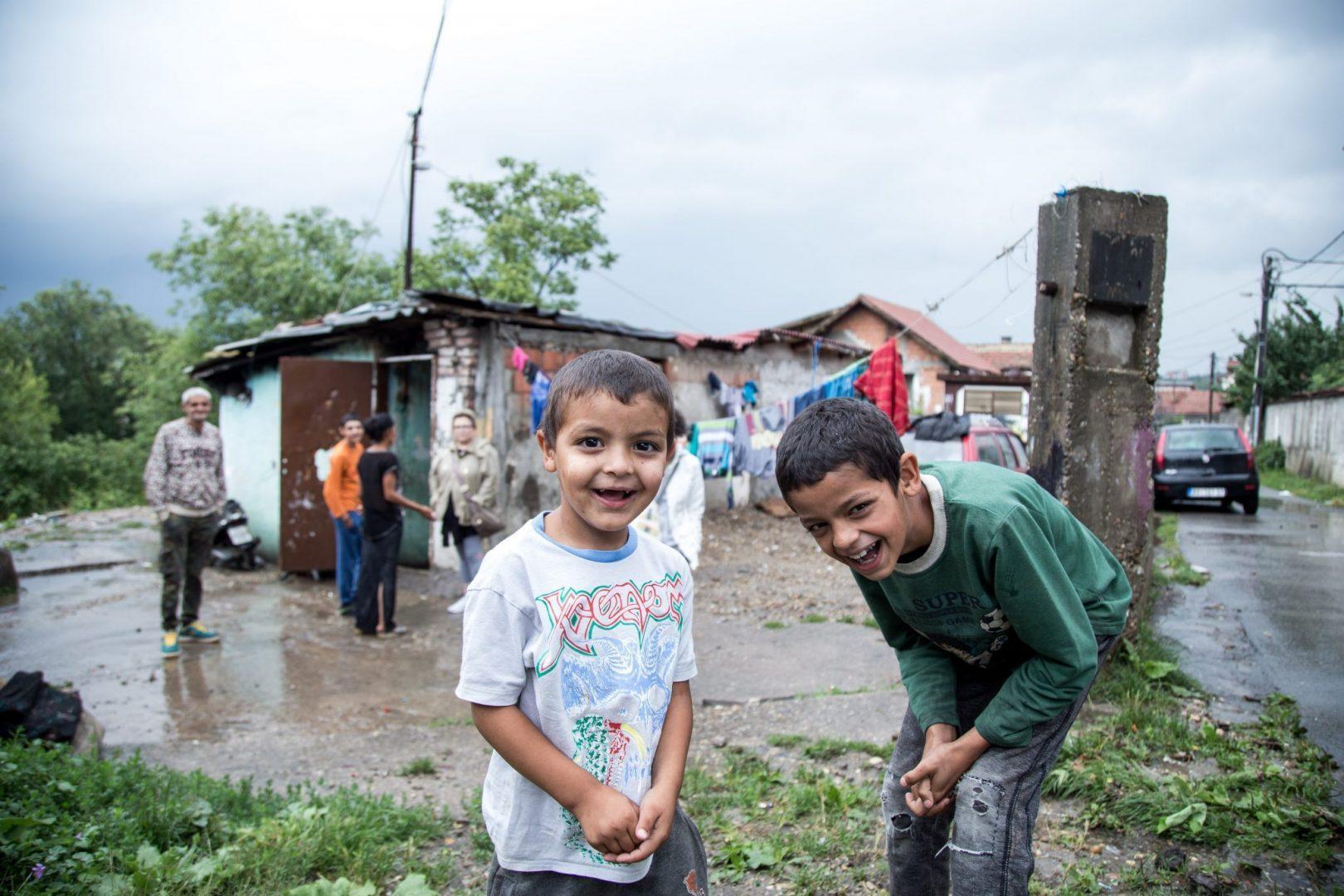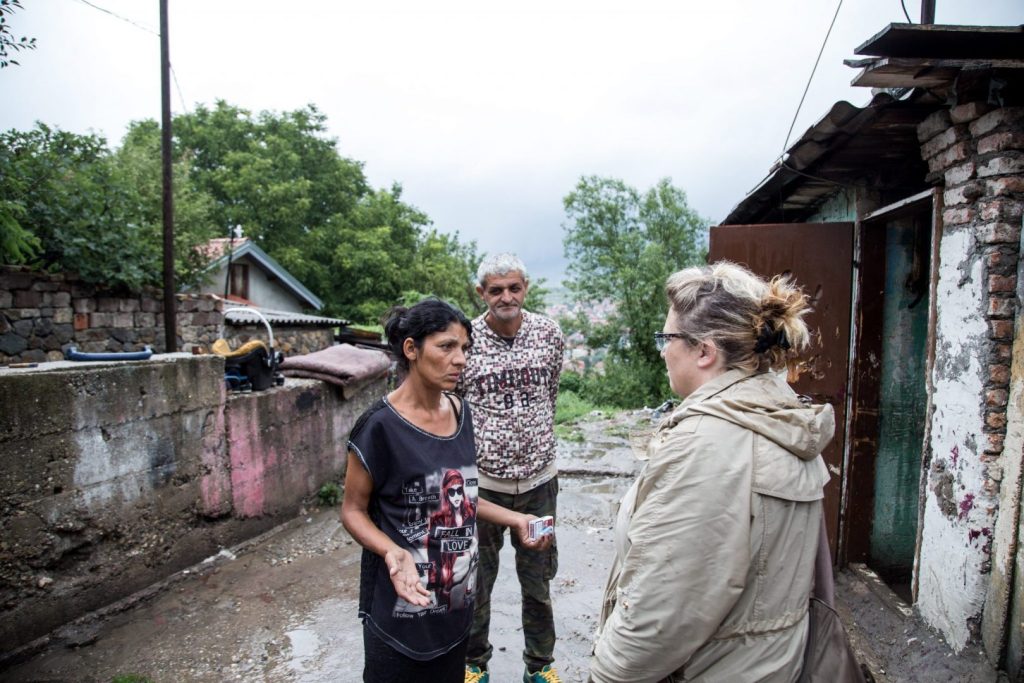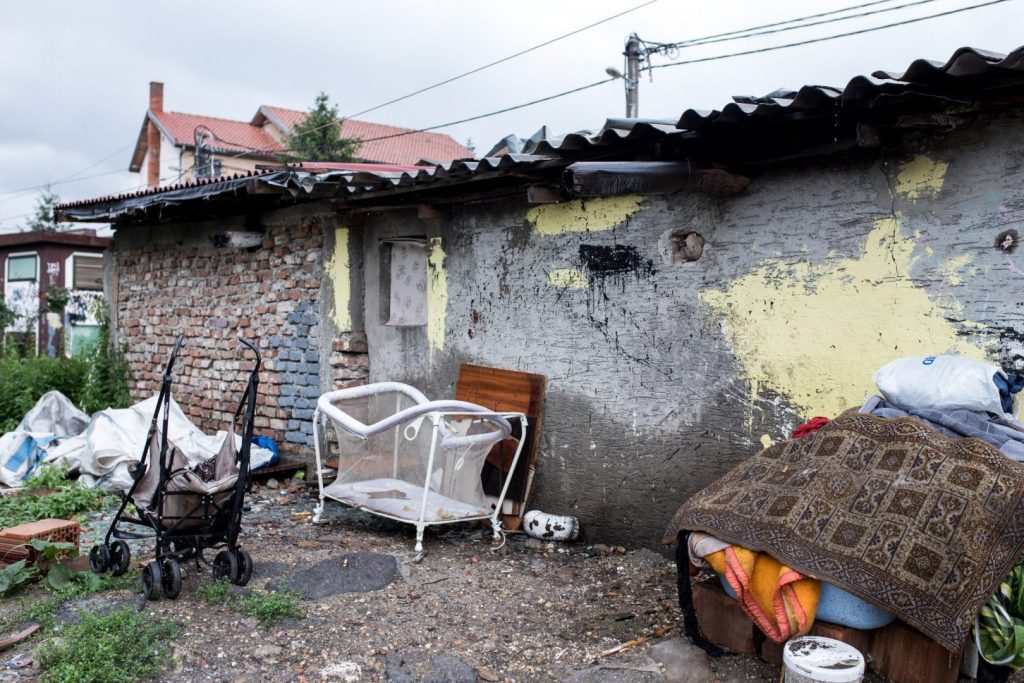Extreme poverty forced Dejan Savić and Merita Kamberi, a married Roma couple from Serbia, to move abroad on many occasions – so far, they have been returning to Germany eleven times and three times to Netherlands.
„You can’t be hungry in Germany. There is always some institution that can provide two meals a day for you and your children. As soon as you come to Germany you don’t have to worry about what you are going to eat. In Belgrade it was the main question every morning – what we are going to eat and how we are going to find the food“, Savić and Kamberi said when asked about their experience in Germany.
They now have nine children, four of which were born in Germany. When they returned to Serbia for the last time, three of their children didn’t have Serbian citizenship and personal documents. This is a very common problem for the returnees, as many children who were born abroad don’t get registered as Serbian citizens. Besides children who were not born in Serbia, this is also a large problem among Roma population in general.
Savić and Kamberi are by far not the only ones with these problems. Upon coming to their homeland many returnees face difficulties that make it hard for them to practice their basic human rights. Not having citizenship of their home country and valid personal documents is only one of the obstacles on their way to further social integration and acceptance. Beside this, there are also the lack of permanent residence and steady source of income, as well as very limited access to social and health protection and regular education. These problems are usually intertwined and stem from one another.
Being fully aware of the situation returnees live in upon their coming back to Serbia, Panacea Solution organization developed a project Support to Development of Local Institutional Capacities for Working with Migrants and Returnees which was carried out from May 2017 to May 2018 in municipalities of Novi Beograd and Novi Sad, with the financial support of the Regional Project – Social Rights for Vulnerable groups (SoRi) of German development Cooperation. Project activities consisted of two components. The first activity was to develop and enhance municipalities’ strategic plans, in order to create the basis for financing the activities aimed at returnees out of municipalities’ sources. The second was to implement one of the activities, previously defined by these strategic plans, that had the direct effect on one of the returnees’ families.
Dejan Savić heard about the project from other members of Roma community, who advised him to turn to Center for Children, Elder and Persons with Disability Care Novi Beograd, a social protection institution founded by the Novi Beograd municipality, Panacea’s key local partner. Even though his family was living in Zvezdara municipality, they immediately received help in food and wardrobe. Further on, it was detected that family’s place of residence was illegal and in very poor living conditions, with no electricity or running water, so Zvezdara municipality began the legalization of the object. In addition to that, the project team provided finances for bringing electricity into the object, which will further be financed by the municipality. Also, the administration paper work which will connect the object to water supply system is being handled. In terms of providing better social status for the family, Dejan Savić received health insurance which enabled other members of the family to be insured as well.
Wardrobe and school supplies were provided for six of his children which made it possible for them to finish the school year in time. In terms of providing long term solution for the family, municipality Novi Beograd financed further education for Dejan Savić which will help him find steady employment.
The example of Savić and Kamberi family showed that it is important to develop systematic institutional support for returnees at the local level, so their social integration in the community would be possible to the fullest extent.
The GIZ Regional Project on Social Rights for Vulnerable Groups commissioned by the Federal Ministry for Economic Cooperation and Development (BMZ) aims at improving the conditions needed to ensure equal social rights, including the right to non-discrimination, of vulnerable groups. Key stakeholders such as centers for social work, local administrations and non-governmental organizations are supported in selected municipalities. The project is implemented in five countries in the Western Balkans: Albania, Bosnia and Herzegovina, Kosovo, Macedonia and Serbia.
Contact person: Mr. Michael Samec




